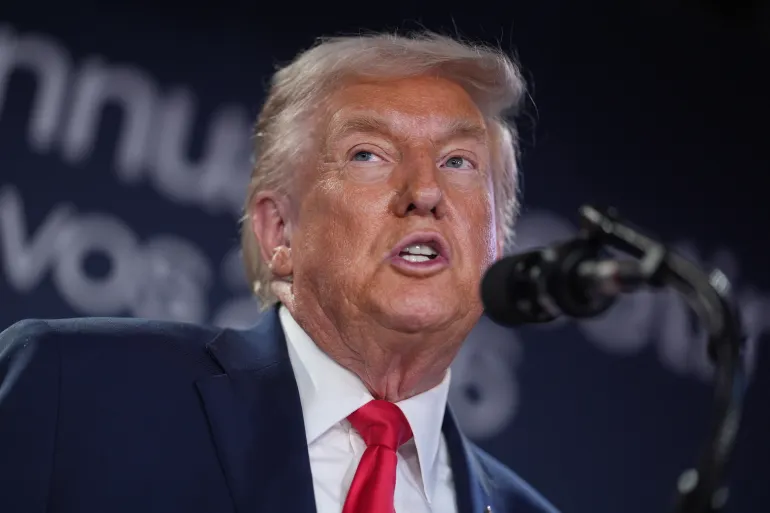Gold continues to reach new record highs, prompting celebration among gold enthusiasts and widespread speculation among investors, the Financial Times reports.
While geopolitical tensions and inflation fears are often cited as reasons for the surge, a lesser-known but intriguing factor is gaining attention: speculation over a potential revaluation of America’s gold reserves.
Currently valued at just $42 per ounce in national accounts, the US gold stockpile is far below the current market price of approximately $2,800 per ounce. Analysts suggest that marking these reserves to market value could inject up to $800 billion into the Treasury General Account through a repurchase agreement. Such a move might reduce the government’s reliance on issuing new Treasury bonds.
This theory gained traction after Scott Bessent, the US Treasury Secretary and former hedge fund manager, pledged to “monetize the asset side of the US balance sheet” while promising to lower 10-year Treasury yields. Financial experts see this as a creative approach to managing the nation’s fiscal challenges.
David Teeters of IESE Business School remarked that revaluing gold “would mechanically deleverage the US balance sheet.” Libertarian analyst Larry McDonald echoed this sentiment, suggesting that it’s time to “get creative around Uncle Sam’s balance sheet.”
Bessent’s push for unconventional solutions comes as the US faces mounting fiscal pressures. House Republicans are considering a tax and spending bill that could add up to $5.5 trillion in deficit increases and $1.3 trillion in interest costs over the next decade, according to the Committee for a Responsible Federal Budget.
Former Treasury Secretary Robert Rubin highlighted the need for substantial tax increases to create fiscal responsibility, arguing that minor cuts to federal programs would be insufficient.
Currency dynamics further complicate the picture. The Trump administration has expressed concerns about the dollar’s overvaluation and its impact on American manufacturing. While a weaker dollar is preferable for boosting exports, the administration is also committed to maintaining the dollar’s global dominance.
Market analysts like Luke Gromen believe gold may play a pivotal role in resolving this contradiction.
“Gold is likely to be a key pivot for the new system the Trump administration is clearly trying to engineer,” Gromen said.
The once-narrow realm of fiscal and monetary policymaking is now expanding, as evidenced by a memo from Stephen Miran, head of Trump’s Council of Economic Advisers. Miran outlines a bold financial strategy involving tariffs as a revenue tool, long-term treasury bonds to secure geopolitical alliances, and even multilateral dollar devaluation accords.
While such ideas may seem unconventional, the current economic environment has prompted a reassessment of previously unimaginable strategies.
“If they start playing games with a weakening dollar, that is highly risky,” Rubin cautioned.










The latest news in your social feeds
Subscribe to our social media platforms to stay tuned